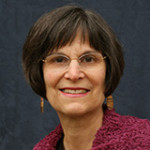 I recently saw the power of thank you highlighted on two different occasions in healthcare settings.
I recently saw the power of thank you highlighted on two different occasions in healthcare settings.
On the first, I was following a team of physicians who were conducting patient rounds on the acute care of the elderly unit at the San Francisco VA Health Care System (SFVAHCS), Fort Miley. The group moving from room to room included medical students and residents, as well as a pharmacist and a social worker. The nurse assigned to care for the particular patient the team visited did not travel with the group through the wards. Instead, as the team fanned out around a patient’s bed, the nurse assigned to that patient—who was almost always in some other patient’s room—would interrupt his or her work and rush in to join the rounds. Whenever a nurse joined the group, the attending physician, Kathryn Eubank, briefly stopped the discussion and thanked the nurse for coming to join them.
Eubank also made sure to ask the nurse if she or he had any concerns or input to share with the team. When the nurse expressed a concern or shared important information, the attending physician thanked the nurse for this input. And when the group was finished, the attending physician again thanked the nurse for joining the rounds.
When I asked Eubank about the “thank yous” that were given at each and every bedside, she explained that this was not just about being polite. Nurses, she explained, are often reluctant to join physicians on rounds, even when invited, because to do so almost always interrupts their work. Many may think that such interruptions aren’t worth it, since they often feel that their concerns are rarely acknowledged or addressed. Saying thank you to the nurse, Eubank explained, is a critical way to ensure that ward rounds are, as she put it, a “high yield” activity for the nurse. It’s important, she said, that the nurse knows that he or she is recognized and that physicians aren’t just paying lip service to the ideal of collaborative, interprofessional practice.
Several months later, I observed a different but equally deliberate use of “thank yous” at the SFVAHCS, as physician Gurpreet Dhaliwal shepherded a group of medical trainees round as they visited patients. Each time the group entered a patient’s room, Dhaliwal made sure to ask the patient if it was okay for the team to talk with them. He was careful to ensure that no one stood hovering over the patient’s bed or chair, and instead sat down at eye level with the patient. The group asked the patient to share their concerns with the team. Then Dhaliwal or a trainee asked the patient if it would be okay if the team spent a moment discussing the case.
After the group finished each encounter, Dhaliwal or one of his students thanked the patient for sparing the time to talk with them. As he explained later, patients thank physicians for taking the time to talk with or examine them—something for which the physician is paid. But patients are also donating their time—which is equally precious—so that physicians and physicians in training can learn from them. They should be thanked, he said, for their valuable contribution to the education of their doctors.
When I asked nurses how they felt about being acknowledged for participating in rounds, they were uniformly delighted. They said that in the traditional model of medical ward rounds, they often felt that they were spectators watching physicians do “their” work. Now they felt that rounds were “ours” rather than “theirs.” And all it took was a thank you that was delivered in less than a second.
When I asked patients about being thanked by a doctor, most said that they were pleasantly surprised that anyone in the hospital—particularly a physician—asked their permission to do anything. They were beyond delighted to be thanked for helping doctors. As one patient said, he had never considered before that he played an important part in medical education.
As I watched Eubank and Dhaliwal engage in these behaviors, I thought about the number of situations where more systematic and deliberate use of the words “thank you” would enhance self-esteem, as well as remove some of the many obstacles that lead to conflict, frustration, and discontent in the healthcare workplace. In encounters between teachers and health professional students; doctors and nurses; nurses and aids or housekeepers; and, in particular, between professionals and patients, a quick thank you is the kind of mindful practice that, in only a few seconds, can change one’s perception of one’s place in a world that is far too often seen as alien or inhospitable.
Suzanne Gordon is a healthcare journalist and co-editor of The Culture and Politics of Healthcare Work series at Cornell University Press. Her latest book is Collaborative Caring: Stories and Reflections on Teamwork in Healthcare, which she co-edited, and she is co-author of Beyond the Checklist: What Else Healthcare Can Learn from Aviation Teamwork and Safety. Most importantly, she is a patient.
Competing interests: None.
